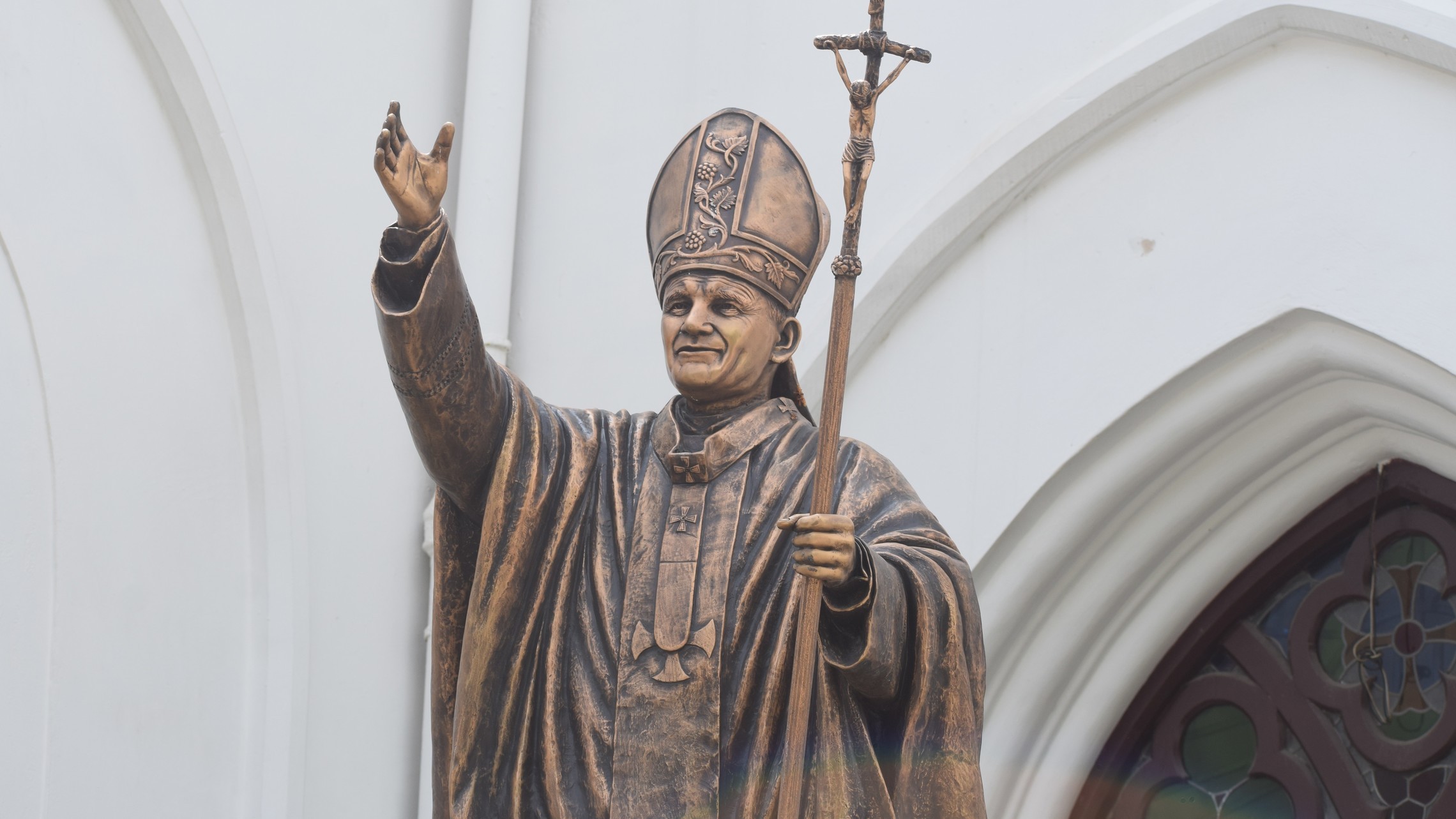
There is a solemn anticipation, a stillness of the day and night where all humanity if they so choose, await the coming of a Savior. Our human attitude begins its preparation to embrace a Divine attitude, which proposes to bring sanctification and salvation through the birth of the Incarnate Word. For the Divine attitude to take form, we are called to enter a story that introduces us to our origin as created human beings in the image and likeness of God.
We are intimately part of a Divine narrative whose author, God the Father, never ceases to reveal how deeply loved we are, primarily through His Son, Jesus Christ. Our response to His love is our human act of the will to follow His Divine will and openly accept Jesus Christ as our Lord and King. St. Augustine reminds us that one of the chief reasons Christ came was to manifest His love for us.[1] The act and virtue of love signify the fruit of the greatest Commandment to love one another as yourself and that all fulfillment comes from Jesus Christ.
Thy will be done
Our Lord calls us to love one another; even as he has loved us, we are called to love one another.[2] What makes this commandment difficult for the human condition to embrace is its challenge to love someone without expecting to receive something in return. St. Matthew provides more context in the following passage:
But when the Pharisees heard that he had silenced the Sadducees, they came together. And one of them, a lawyer, asked him a question, to test him. “Teacher, which is the great commandment in the law?” And he said to him, “You shall love the Lord your God with all your heart, and with all your soul, and with all your mind. This is the great and first commandment. And a second is like it, You shall love your neighbor as yourself. On these two commandments depend all the law and the prophets.[3]
We witness a progressive demonstrative directive from Christ to his followers to love without condition or stipulation. Jesus provides us with the perfect model of human obedience as the Son of God who willfully offers himself in death for the salvation of every human soul. The significance of this act of faith is a surrender to the will of the Father. The book of Hebrews refers that the Savior has come to do the will of the Father[4]; in the Agony in the Garden, Jesus submits his will to His Father, not my will but yours be done.[5]
The words of Christ, “Thy will be done,” are the pathway to prudence, humility, obedience, the profession of faith and surrender to sin. The Catechism of the Catholic Church reminds us of the origin of these pathways through Jesus Christ:
Although he was a Son, [Jesus] learned obedience through what he suffered.” How much more reason have we sinful creatures to learn obedience—we who in him have become children of adoption. We ask our Father to unite our will to his Son’s, in order to fulfill his will, his plan of salvation for the life of the world. We are radically incapable of this, but united with Jesus and with the power of his Holy Spirit, we can surrender our will to him and decide to choose what his Son has always chosen: to do what is pleasing to the Father.[6]
A seminal point to these pathways can be found In St. Augustine’s great work, The City of God, where he describes those who oppose the will of the Father as a result of the battle between good and evil. Those who choose to sin cannot harm God; instead, they wound themselves. It is not their nature, but the wound in their nature, that is opposed to God as evil is opposed to good.[7] The pattern we encounter through these passages from Sacred Scripture and the writings of St. Augustine is a command to confirm our will to the Father’s will if we act in faithful obedience. Our actions are called to reflect what is pleasing to God.[8]
But why?
Why should anyone try to follow the will of God? Why should I embrace a life centered on Jesus Christ, the Son of God, who allowed himself to be tortured, humiliated, betrayed, and killed? Simply put, if you want an opportunity to enter the kingdom of Heaven and avoid the pains of Hell, it is in your best interest to follow the will of the Father as Jesus Christ commanded us.
As we continue our Advent journey in joyful anticipation of the Incarnation, I offer the following spiritual guideposts from Blessed Solanus Casey; he entitled: the “means for acquiring the love of God” to help us strengthen our own will to be in union with our Father’s will in Heaven.
1. Detachment of oneself from earthly affections; singleness of purpose!
2. Meditation on the Passion of Jesus Christ
3. Uniformity of will within the Divine Will
4. Mental Prayer, meditation, and contemplation
5. Prayer: “Ask, and it shall be given to you.”
Blessed Solanus Casey, pray for us!






